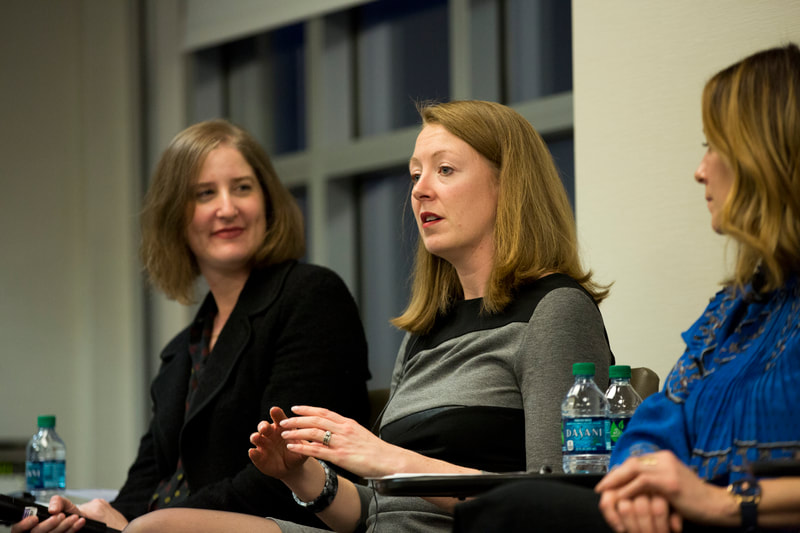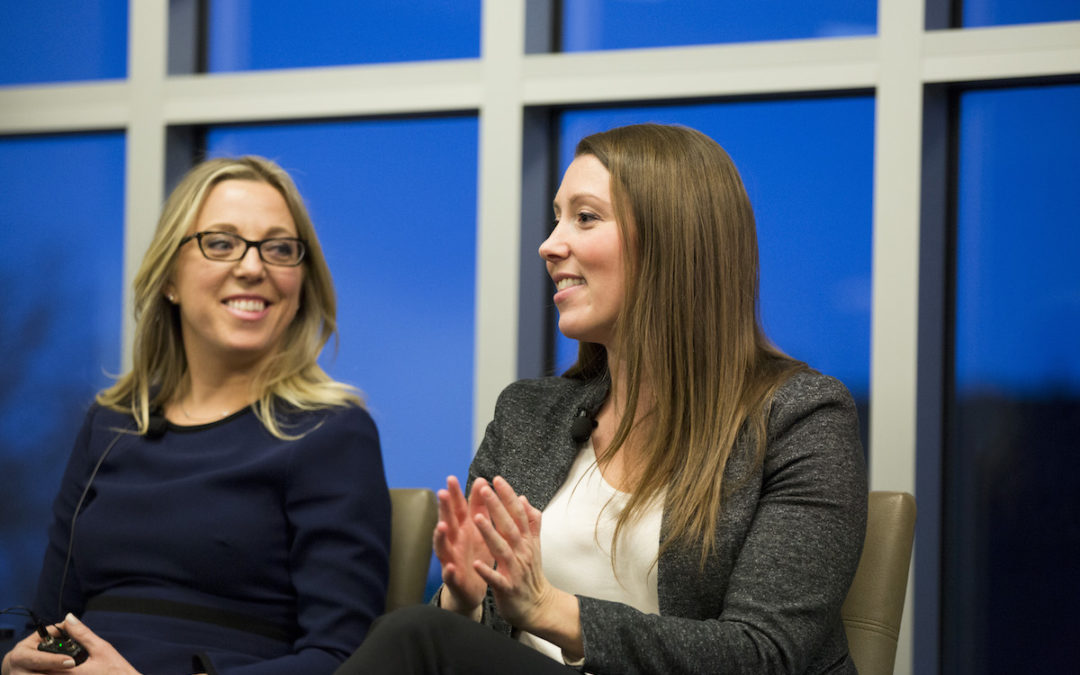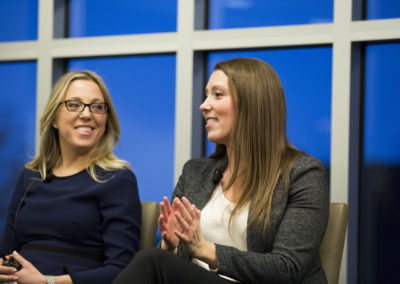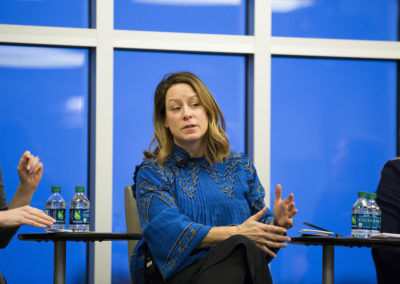Creating vibrant communities and neighborhoods through better design was a key theme of the 12th Annual Distinguished Alumni Panel sponsored by the Kellogg School of Management’s Guthrie Center for Real Estate on Feb. 11.
Panelists discussed ongoing renovations to an iconic Chicago skyscraper—the Willis Tower—and plans for one of the city’s most anticipated new developments—The 78–in a wide-ranging discussion about local and national trends in the real-estate industry.
“At Willis, we’re creating a neighborhood,” said Kirsten Ekdahl Hull ’06, Vice President of Development at EQ Office, an affiliate of Blackstone. The $500 million Willis Tower renovation involves 300,000 square feet of new construction.

Goldie Mentor Kirsten Ekdahl Hull discusses Willis Tower project.
Much of the new space will be devoted to amenities like retail shops, restaurants, a fitness center, and tenant lounges. A five-story addition at the building’s base will feature a food hall and is designed to integrate the building more fully into the life of the city.
“Our neighborhood is more vertical than horizontal, but it’s a neighborhood nonetheless,” Ekdahl Hull said. “We focus on how we can make this building, which was built in 1973 and really impenetrable and not part of the urban fabric in any way, shape, or form—how we can make it truly part of the urban landscape and the neighborhood.”
The other panelists were Suzanne Martinez ’08, Managing Director of LaSalle Investment Management; Molly McShane ’07, Chief Operating Officer of the McShane Companies; and Dani Sassower ’16, Associate at Related Midwest.
Although The 78 and Willis Tower projects follow a trend toward revitalized city centers, Martinez noted that LaSalle sees the potential for renewed growth in the suburbs.
“Millennials are getting married and having kids,” she said. “And so one of the trends we’re seeing is that the suburbs are going to be back. And we are focusing on areas that have really strong school districts.”
In the industrial real estate space, it’s a moment of experimentation as distribution centers move closer to the populations they serve, according to McShane. The shift is driven by increasing demand for one-hour delivery times and by the competition for workers at a time of low unemployment.
“It’s about more than just Amazon,” she said. “The third-party logistics firms that deliver goods need to be close to their customers. So they’re going from these million-square-foot distribution centers to small, older buildings, because that’s what they can find in the city.”
The panel was moderated by Megan Abraham, Executive Director of The Goldie Initiative, whose mission is to “prepare women for senior leadership roles in all sectors of commercial real estate.”
The Goldie Initiative currently supports 19 Goldie Scholars with a $10,000 scholarship, a mentor, and extensive training and networking opportunities. Five Northwestern students take part in the program, which has supported about 100 students since its inception in 2007.



